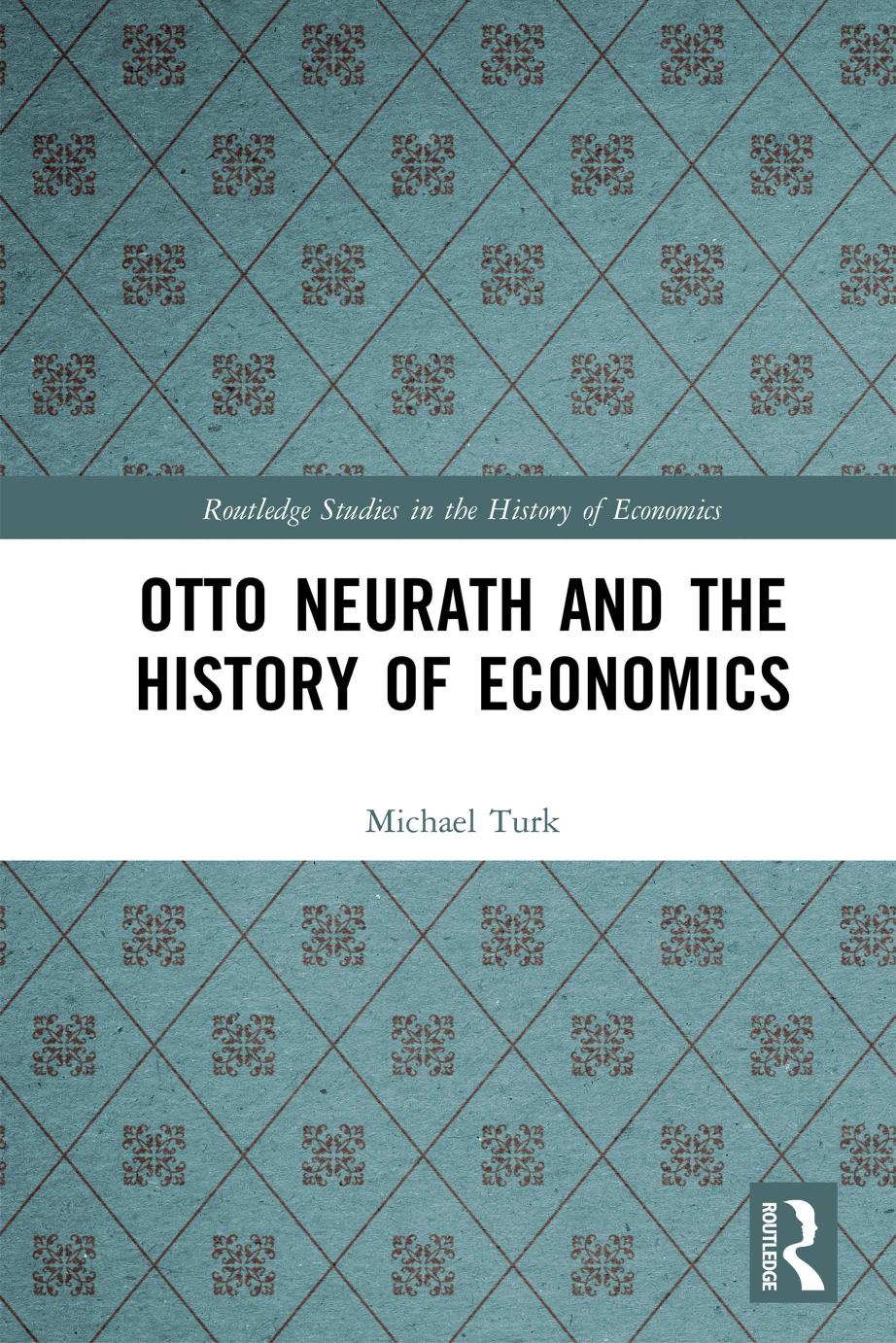Otto Neurath and the History of Economics by Michael Turk

Author:Michael Turk
Language: eng
Format: epub, pdf
Publisher: Taylor & Francis (CAM)
One might add to this Neurath’s rejection of many of the assumptions, concepts, and constructions that have shaped neoclassical economics, thereby bringing to bear not only Neurath’s philosophy of science, as Spash has done, but also his economic thought in grounding a twenty-first century ecological economics.
Spash’s article presents yet another matter of contention and controversy regarding Neurath and the Vienna Circle. In this piece Spash fought a rearguard battle over the nature of logical empiricism, noted above in brief, taking up concerns raised by Neurath scholars like Cat, Uebel, and O’Neill, among others. On the one hand, the claim has been made that logical positivism, associated closely with the Vienna Circle, forms the basis in the philosophy of science for neoclassical economics, supposedly because it relies solely upon observation statements and logical formalism. On the other, the Neurath scholars cited above would characterize that understanding of logical positivism as lacking nuance or even representing a gross caricature. Uebel, for example, produced a lengthy study with the insightful title and thesis that Neurath had “overcome” logical positivism from within (Uebel 1992).
The contemporary philosopher Hilary Putnam has introduced yet another vantage point in this debate. Drawing in part upon the work of Vivian Walsh, Putnam contended that a ‘fact/value’ dichotomy posited by the logical positivists held sway over many “influential economists” of the mid-twentieth century (Putnam 2011: 284–285, 290).
From the perspective of the history of economic thought it would be nothing short of remarkable if Otto Neurath, an unorthodox economist (who in more contemporary parlance would clearly be thought of as ‘heterodox’), whose work in political economy has long been obscured and largely neglected, had somehow played a leading part in shaping the underpinnings of neoclassical, that is, mainstream economics in the latter half of the twentieth century. Would the caricatured version of logical positivism fill – and fulfill – this role?
In the manifesto that launched publicly the Vienna Circle, for which Neurath was the prime author, he did list both Karl Marx and Carl Menger as the two economic thinkers who supported a ‘scientific conception of the world’ and sought to eliminate metaphysics from science. I have my doubts about any such major role for logical positivism in underpinning mainstream economics, certainly as it was espoused by Neurath. For one, as the references to Marx and Menger show, he took note specifically of the diversity in views, approaches, and perspectives of those engaged in the study of political economy who adhered to a ‘scientific conception of the world’. Second, and this may be crucial in considering the long arc of the history of economic thought, clear statements of philosophy – let alone coherent or consistent ones – seem generally to be lacking among practitioners of economics, as distinct from its methodologists, who have typically been cast apart.
Download
Otto Neurath and the History of Economics by Michael Turk.pdf
This site does not store any files on its server. We only index and link to content provided by other sites. Please contact the content providers to delete copyright contents if any and email us, we'll remove relevant links or contents immediately.
Pale Blue Dot by Carl Sagan(4995)
The Rules Do Not Apply by Ariel Levy(4956)
Goodbye Paradise(3798)
Ogilvy on Advertising by David Ogilvy(3599)
Liar's Poker by Michael Lewis(3440)
Delivering Happiness by Tony Hsieh(3418)
Into Thin Air by Jon Krakauer(3384)
Purple Cow by Seth Godin(3195)
Rogue Trader by Leeson Nick(3039)
The Social Psychology of Inequality by Unknown(3015)
The Airbnb Story by Leigh Gallagher(2850)
4 - Harry Potter and the Goblet of Fire by J.K. Rowling(2698)
The Mind Map Book by Tony Buzan(2570)
Bossypants by Tina Fey(2524)
Claridge's: The Cookbook by Nail Martyn & Erickson Meredith(2398)
All the President's Men by Carl Bernstein & Bob Woodward(2362)
Six Billion Shoppers by Porter Erisman(2295)
Master of the Game by Sidney Sheldon(2282)
Alibaba by Duncan Clark(2076)
